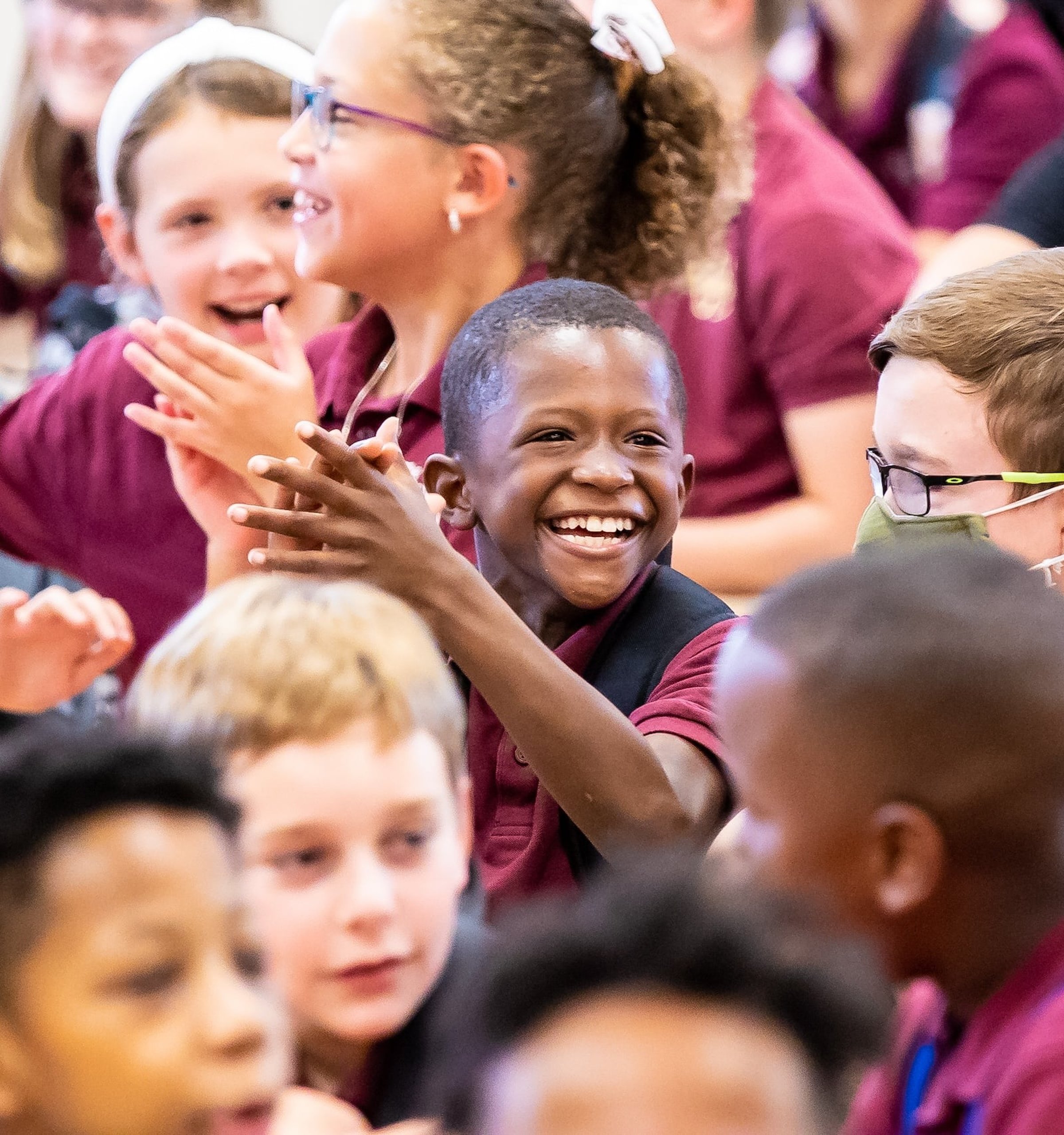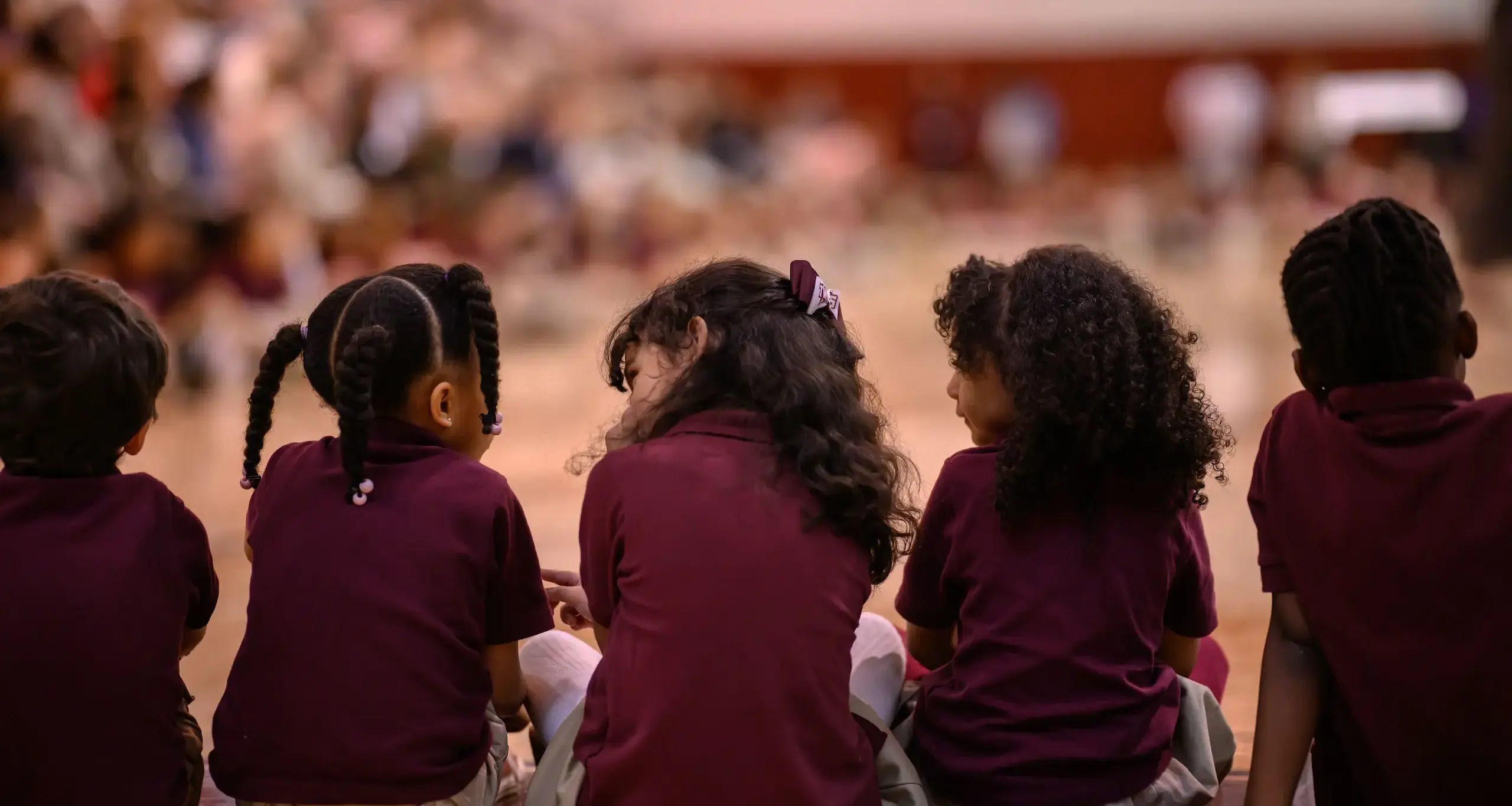The social studies curriculum at Walker allows students to gain a greater understanding of people, culture, the nation, and the world around them through studying social studies and history.
PRIMARY SCHOOL
Learning about Social Studies in the Primary School occurs through authentic integration throughout the year. Rich children’s literature is often the starting point as students dive deeper into learning about the people, geography or situations shared through these stories. In addition to being woven in throughout our school day, our Counselor plans thematic lessons and units related to our unique identities, emotions and heritage months that represent our diverse community. Library lessons often introduce students to characters and settings from all around the world.
Hands-on activities engage students and activate their problem-solving and creative-thinking skills as they complete tasks related to the stories they read. The Annual Primary School Art Show is one example of interdisciplinary learning related to a changing theme. Additionally, parents are encouraged to come in and share about their family’s culture and important celebrations throughout the year. Students love learning about how their classmates celebrate and comparing how these celebrations are similar and different.
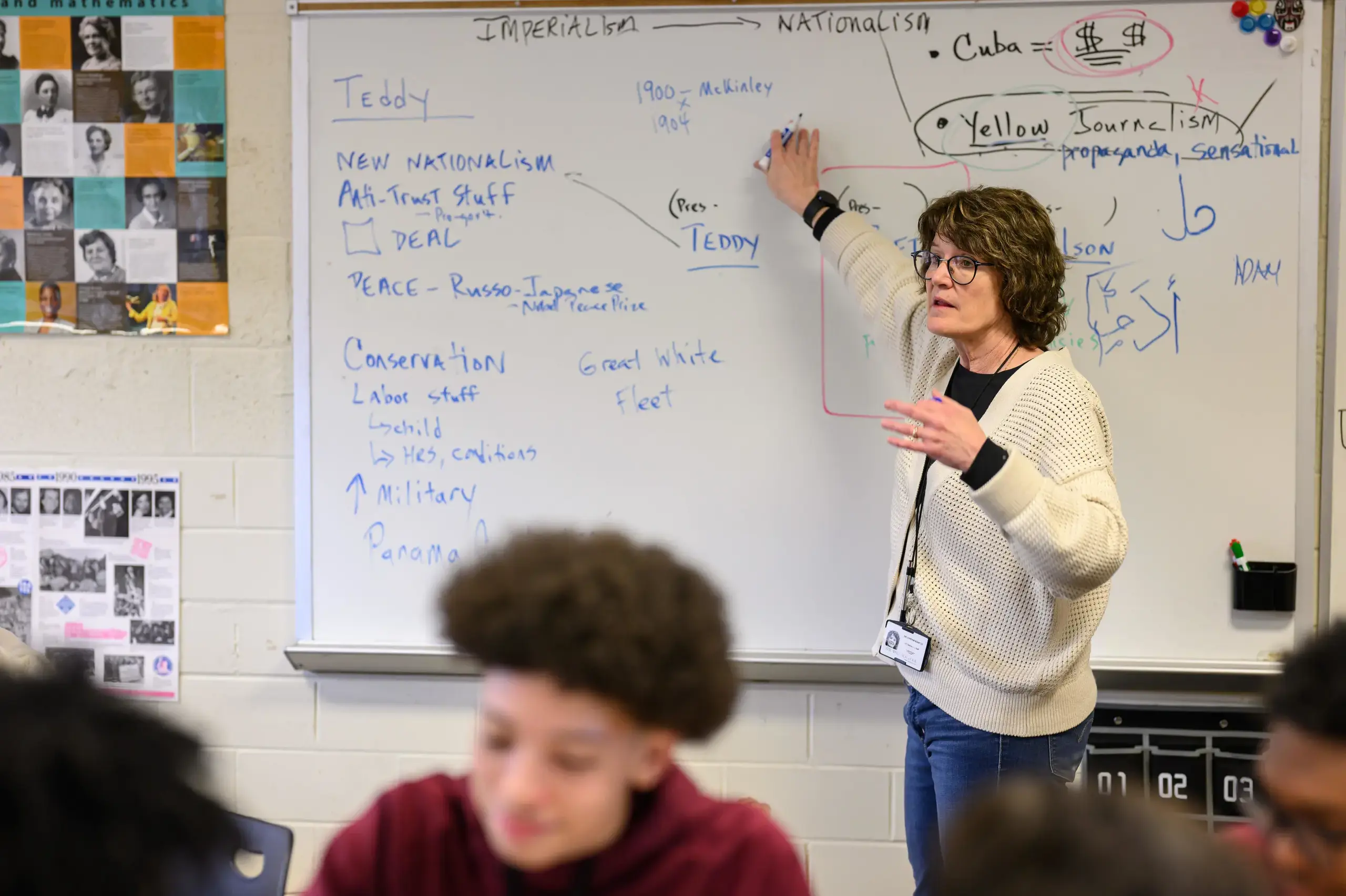
LOWER SCHOOL
Through Social Studies, Lower School students explore a variety of times and places and learn how people relate to one another, how to observe patterns of change, and how to interpret the reactions of people of groups of people to that change. Students are asked to make connections between current events and those that occurred in the past. The exploration of history is based on the study of thematic units in first through third grade. The fourth and fifth-grade study follows the formation and growth of the United States. Students develop a wide range of skills throughout their studies. Students learn essential local, national, and global geography, note-taking, and study skills.
Lower School students hone non-fiction reading skills through various resources, including textbooks, primary sources, newspapers, magazines, and online databases. Critical thinking and the importance of asking questions are emphasized. The Social Studies program includes multicultural perspectives, hands-on experiences, field trips, and opportunities to share student learning outside the classroom. Technology skills are woven throughout the curriculum. Social Studies units are integrated with other academic and co-curricular subjects when possible.
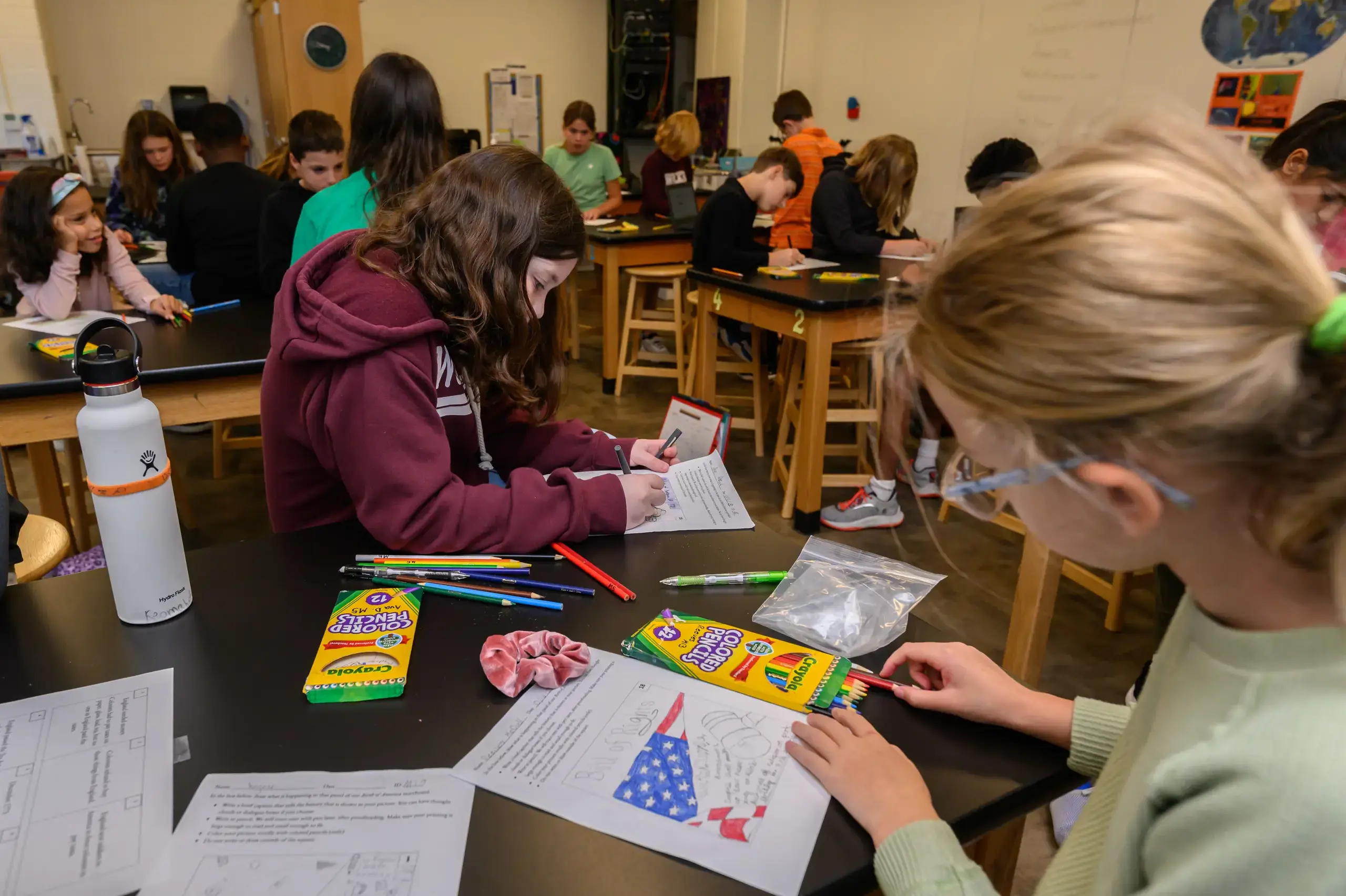
MIDDLE SCHOOL
The Middle School understands the unique place of students in grades 6-8 and seeks to promote the development of their individual identity alongside their academic skills. Our core beliefs balance fostering critical thinking, perspective taking, curiosity, and empathy with crucial skills such as document analysis, note taking, organization of ideas, and using evidence to support claims. The themes explored include cause and effect, continuity and change over time, and civic ideas and practices from a global to a local scale. Experiential learning opportunities complement the Social Studies curriculum, allowing students to see the world as their classroom. Trips include visits to the Equal Justice Initiative’s Legacy Museum in Montgomery, Alabama, and a capstone trip for 8th graders to the nation’s capital, Washington, D.C.
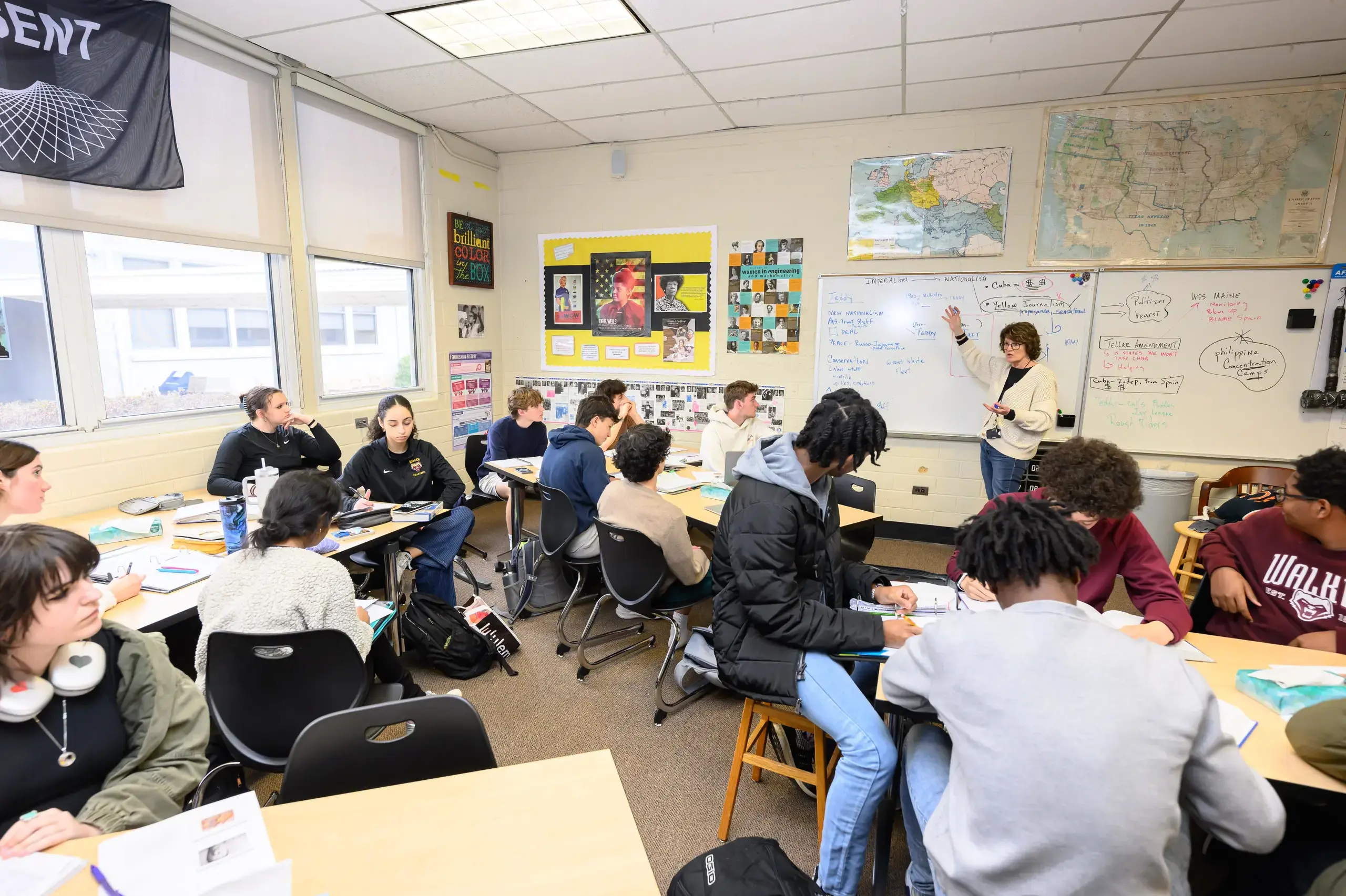
UPPER SCHOOL
Because we believe “that an understanding of the past is fundamental to understanding the present,” the Upper School Social Studies curriculum is designed so students recognize their place in the modern world and the forces that have shaped their own and other societies. A critical study of social science promotes knowledge, analytical thinking, and writing skills. The Upper School curriculum engages students in this work through the analysis of multiple perspectives of gender, race, and socioeconomic status.
We prioritize the skill of clear, persuasive, and evidence-based writing, and students are encouraged to ask questions, problem-solve, and engage with classmates and faculty in civil discussion of course content. Various courses are offered in history, political science, economics, and psychology giving students the opportunity for a broad understanding of the Social Studies.

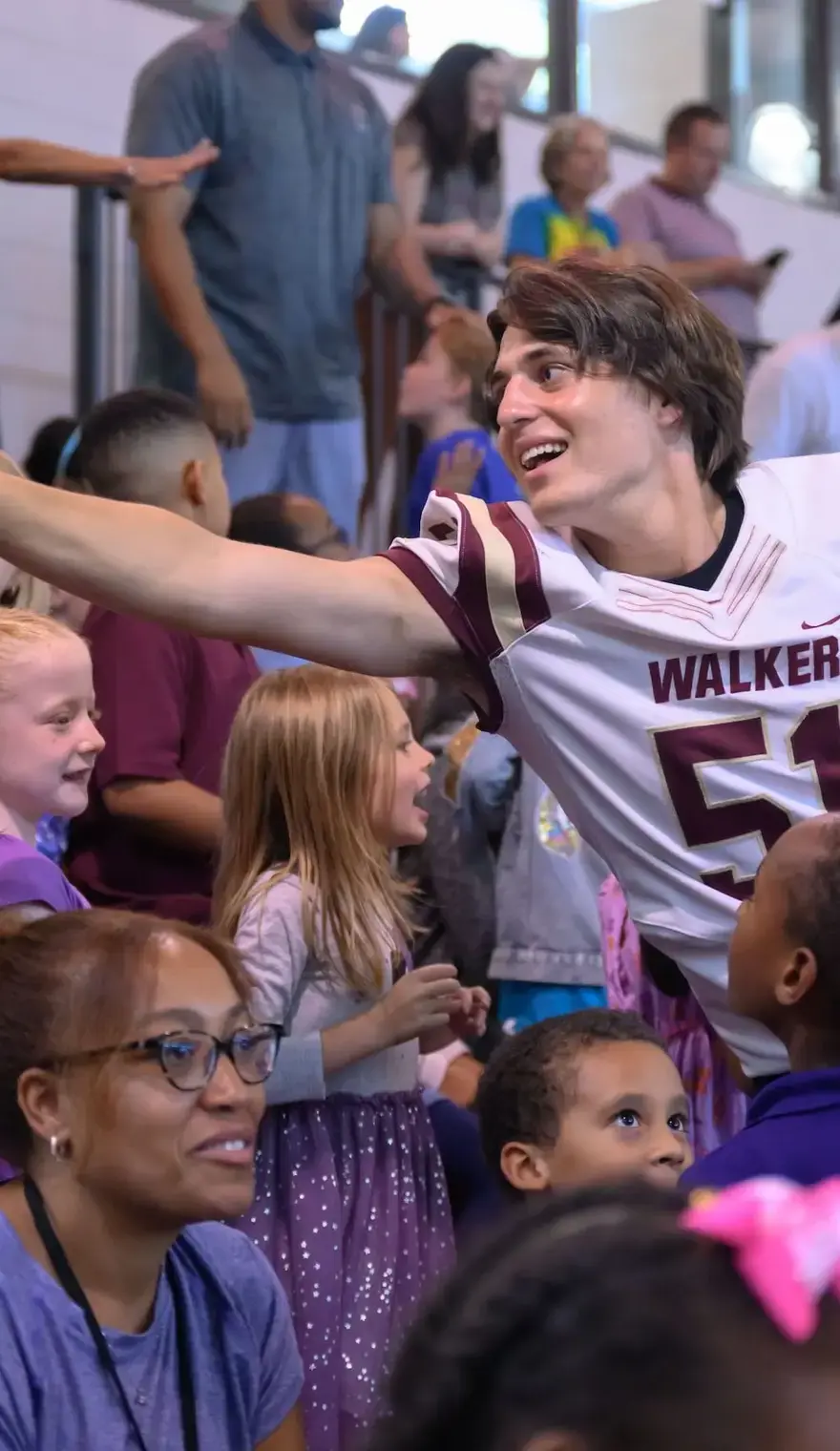
_796.webp?version=638594326083730000)
